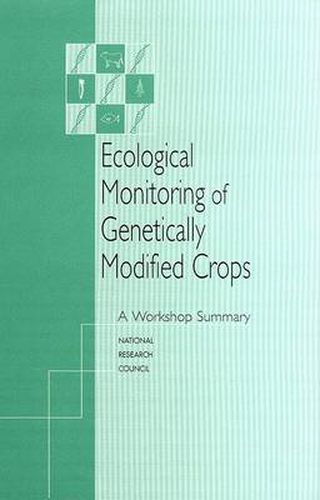Readings Newsletter
Become a Readings Member to make your shopping experience even easier.
Sign in or sign up for free!
You’re not far away from qualifying for FREE standard shipping within Australia
You’ve qualified for FREE standard shipping within Australia
The cart is loading…






Proponents of agricultural biotechnology believe that genetically modified (GM) crops have the potential to provide great ecological benefits, such as reduced pesticide and land use, as well as agricultural benefits. However, given the rapid emergence of commercial GM crops and the likely increase in their use, many groups have raised concerns about the potential unintended, adverse ecological effects of these crops. Some ecological concerns are enhanced development of pest resistance, crosspollination with wild relatives, and reductions in beneficial insects or birds. Ecological Monitoring of Genetically Modified Crops considers the latest in monitoring methods and technologies and to asks–What are the challenges associated with monitoring for ecological effects of GM crops? Is ongoing ecological monitoring of GM crops a useful and informative activity? If so, how should scientifically rigorous monitoring be carried out in the variety of ecological settings in which GM crops are grown?
$9.00 standard shipping within Australia
FREE standard shipping within Australia for orders over $100.00
Express & International shipping calculated at checkout
Stock availability can be subject to change without notice. We recommend calling the shop or contacting our online team to check availability of low stock items. Please see our Shopping Online page for more details.
Proponents of agricultural biotechnology believe that genetically modified (GM) crops have the potential to provide great ecological benefits, such as reduced pesticide and land use, as well as agricultural benefits. However, given the rapid emergence of commercial GM crops and the likely increase in their use, many groups have raised concerns about the potential unintended, adverse ecological effects of these crops. Some ecological concerns are enhanced development of pest resistance, crosspollination with wild relatives, and reductions in beneficial insects or birds. Ecological Monitoring of Genetically Modified Crops considers the latest in monitoring methods and technologies and to asks–What are the challenges associated with monitoring for ecological effects of GM crops? Is ongoing ecological monitoring of GM crops a useful and informative activity? If so, how should scientifically rigorous monitoring be carried out in the variety of ecological settings in which GM crops are grown?